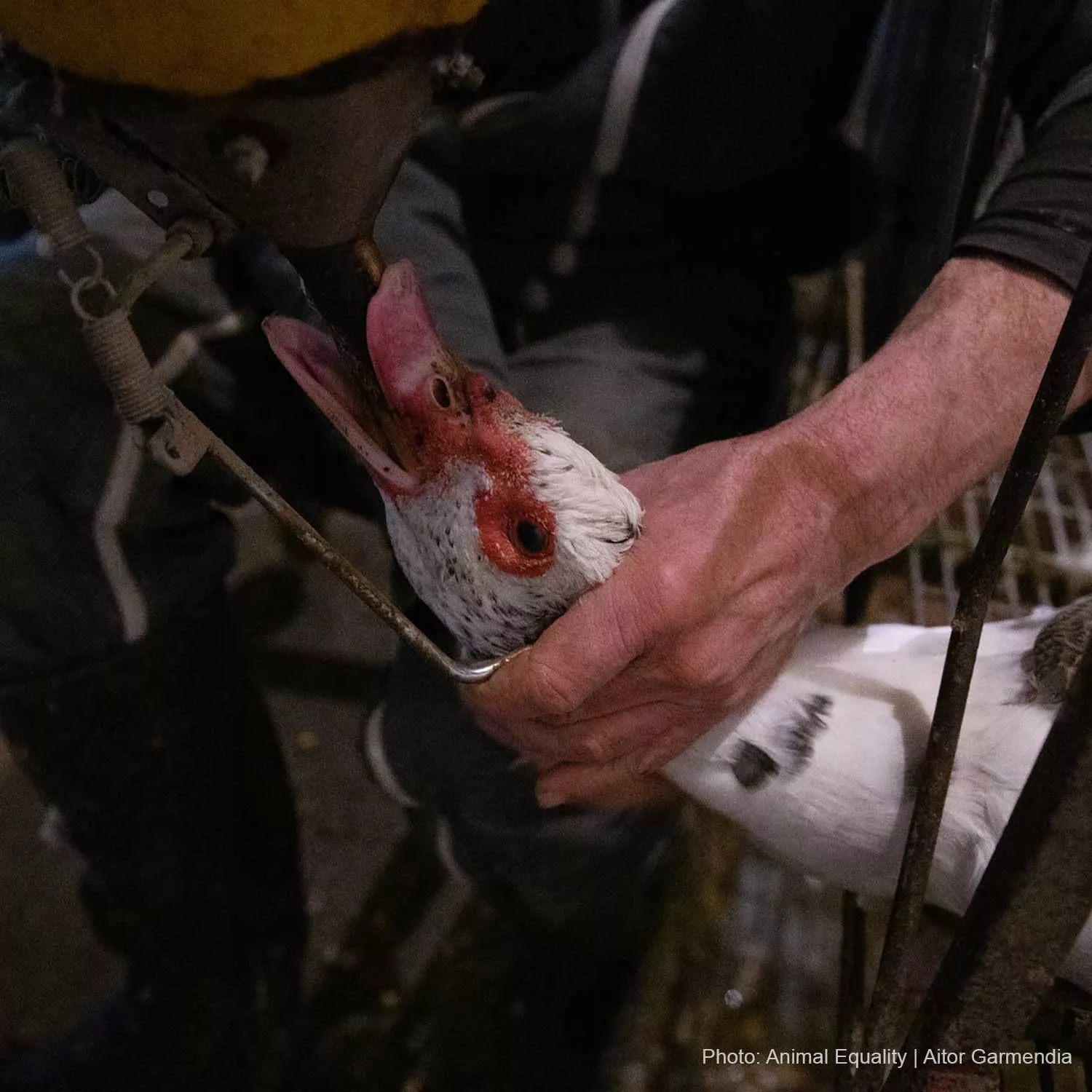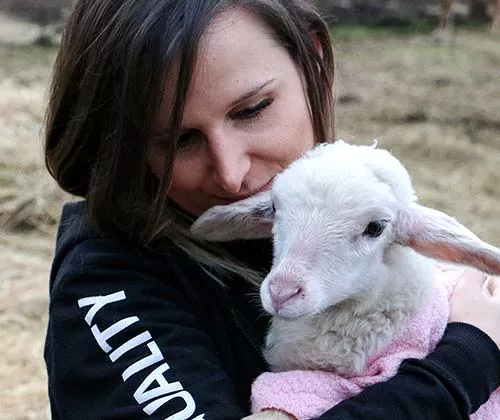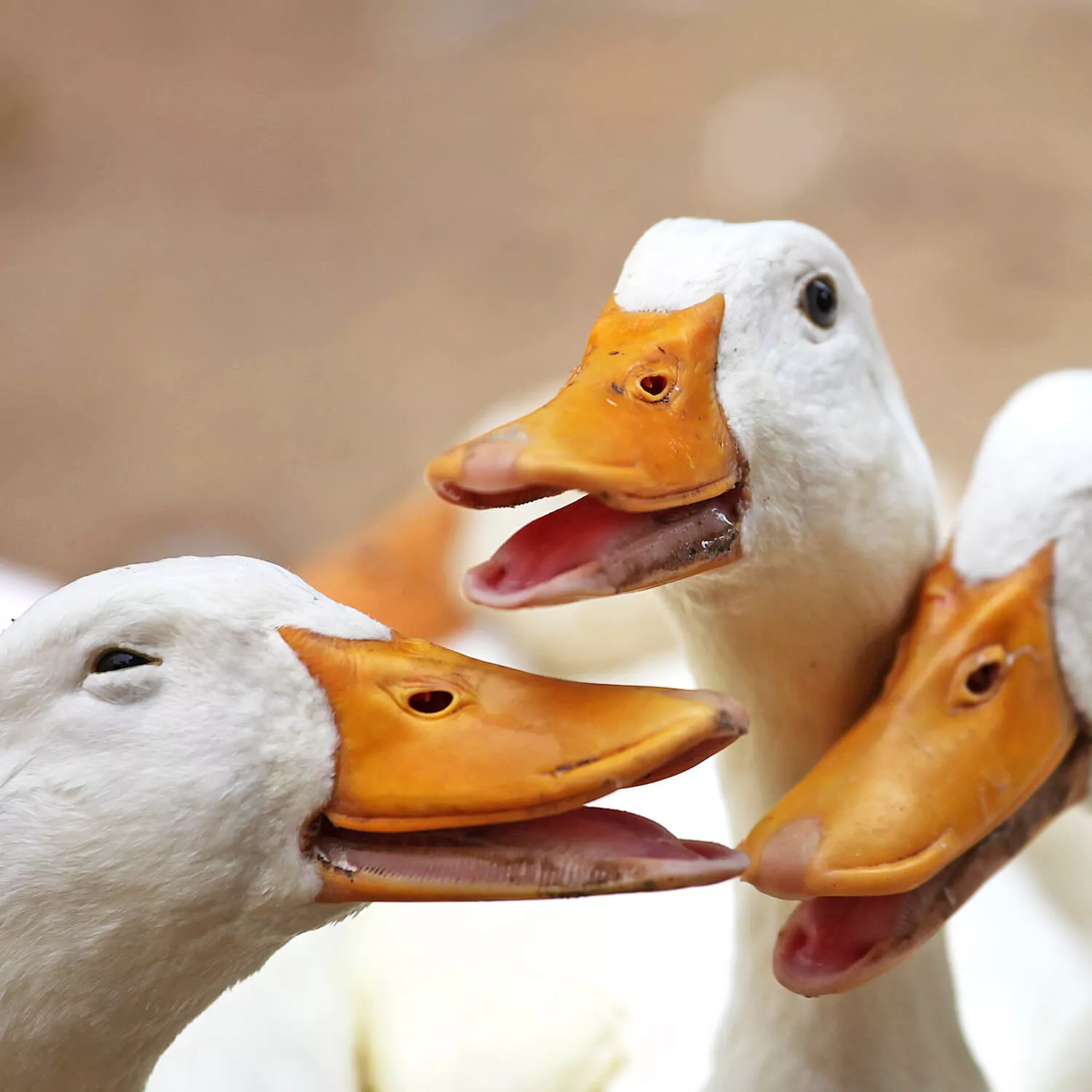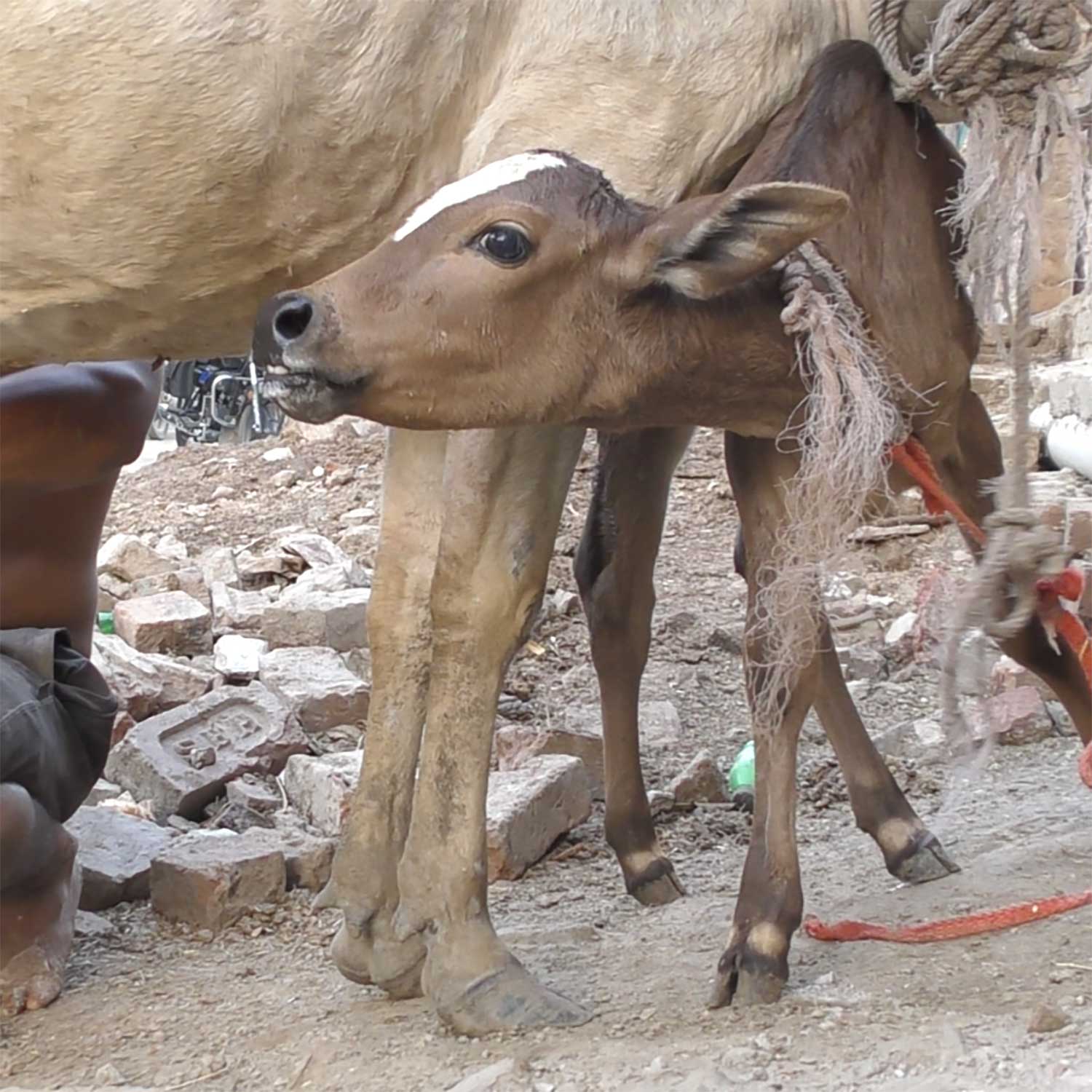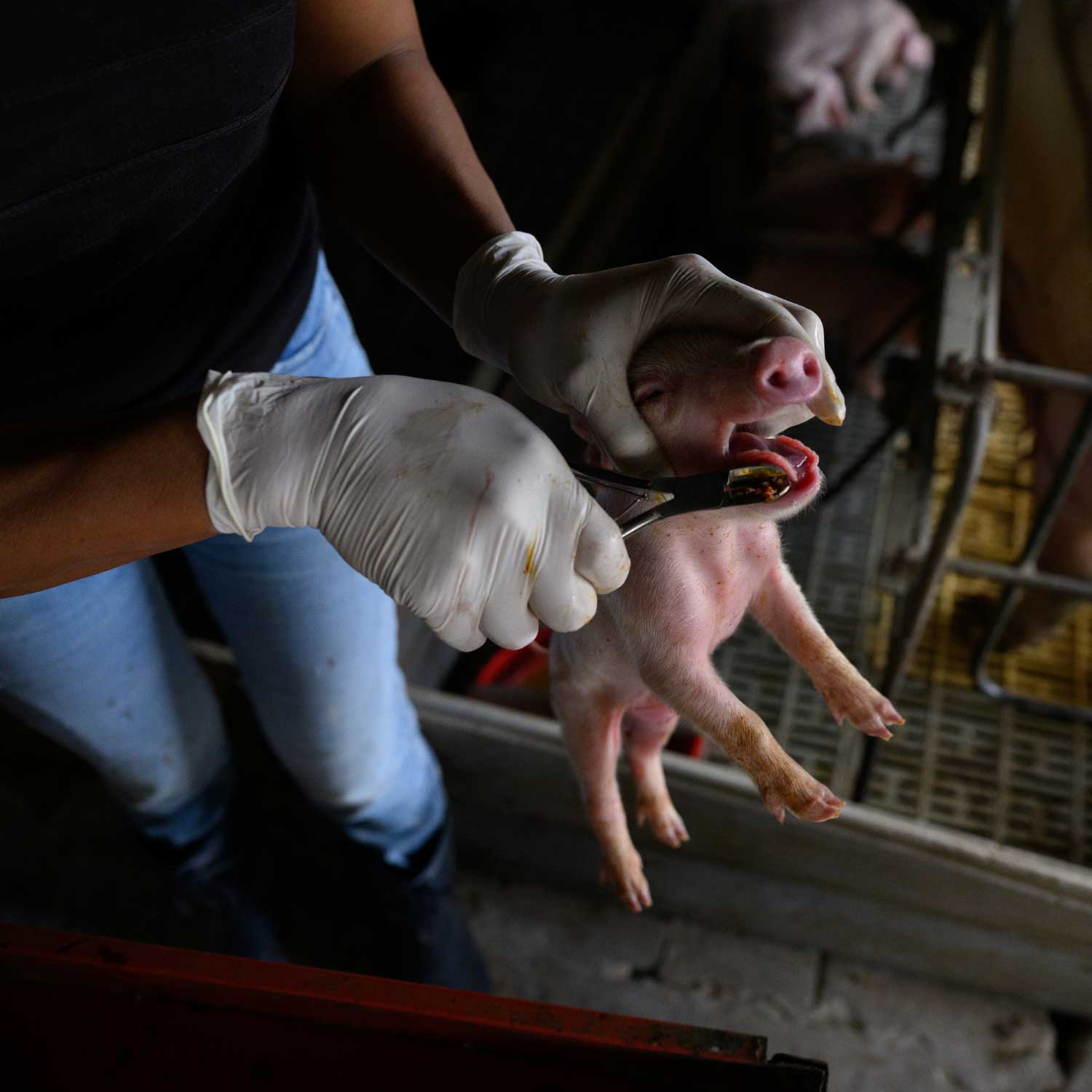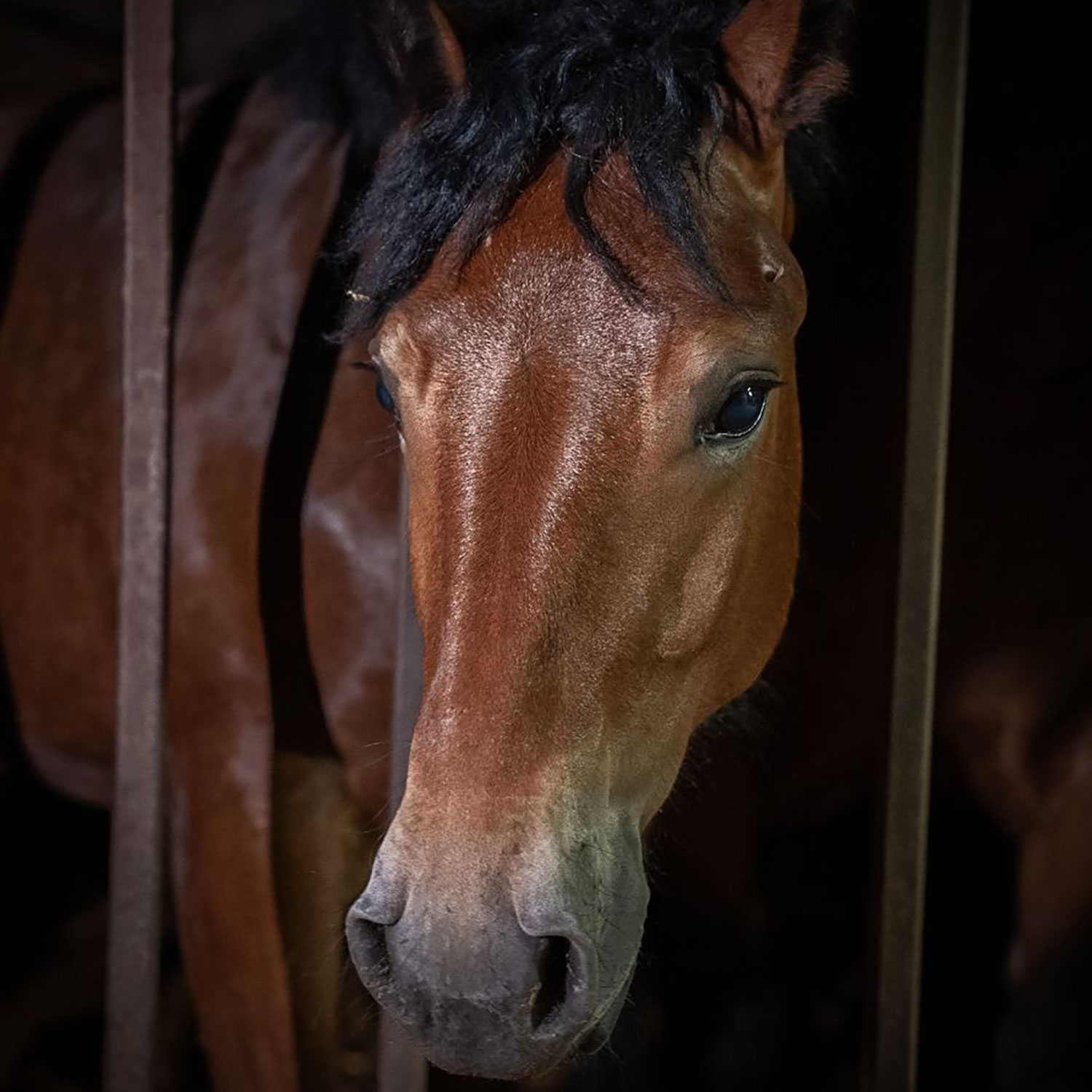Breaking news: foie gras discovered on Olympic Games’ menu
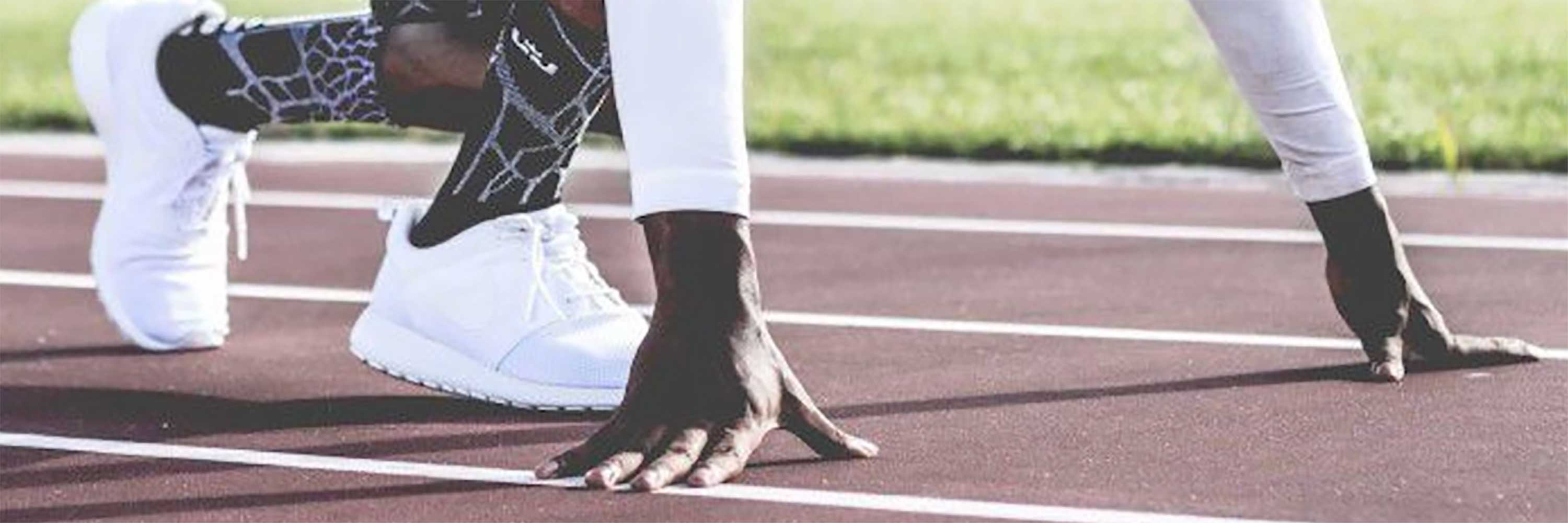

Update 7/26/2024: Despite strong efforts by Animal Equality and broad public support, the Olympic organizers have chosen not to remove foie gras from the 2024 hospitality menu. Animal Equality’s global fight to end force-feeding continues, building on past successes from India to Italy. Sign Animal Equality’s petition to ban foie gras in the United States, and stay updated on the campaign in Ann Arbor, Michigan.
Update 7/24/2024: On July 22–just before the Olympics–Animal Equality delivered 60,000 petition signatures to Paris Olympic organizers, urging them to remove foie gras from the VIP hospitality menu. Supported by local groups, protesters held signs and projected messages on buildings, highlighting foie gras cruelty and drawing significant attention from locals and tourists.

Update 7/22/24: Just weeks after Animal Equality launched a campaign to remove foie gras from the Olympic hospitality menu, advocates took to social media to voice their concerns. On Instagram, they urged the Olympic chefs to use their influence and shape a kinder menu.
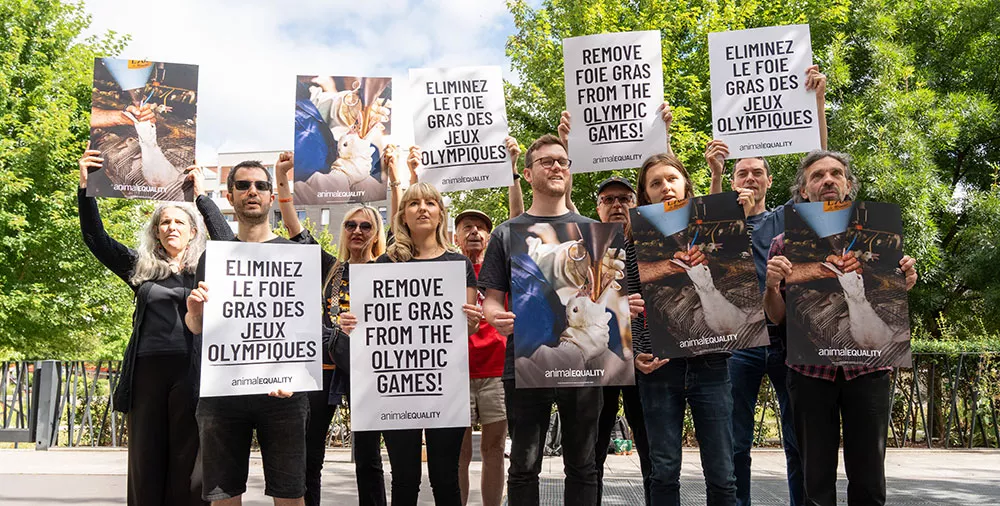
Update 7/9/24: Olympic medallists, experts, and academics are calling on the Olympic Committee to remove foie gras from the hospitality menu. In an open letter, they highlight the severe ethical, environmental, and health issues related to foie gras produced through force-feeding. The letter, endorsed by prominent figures like environmentalist Chris Packham and Olympic athletes Marcus Daniell and Dotsie Bausch, urges the organizers to reconsider serving this controversial dish.
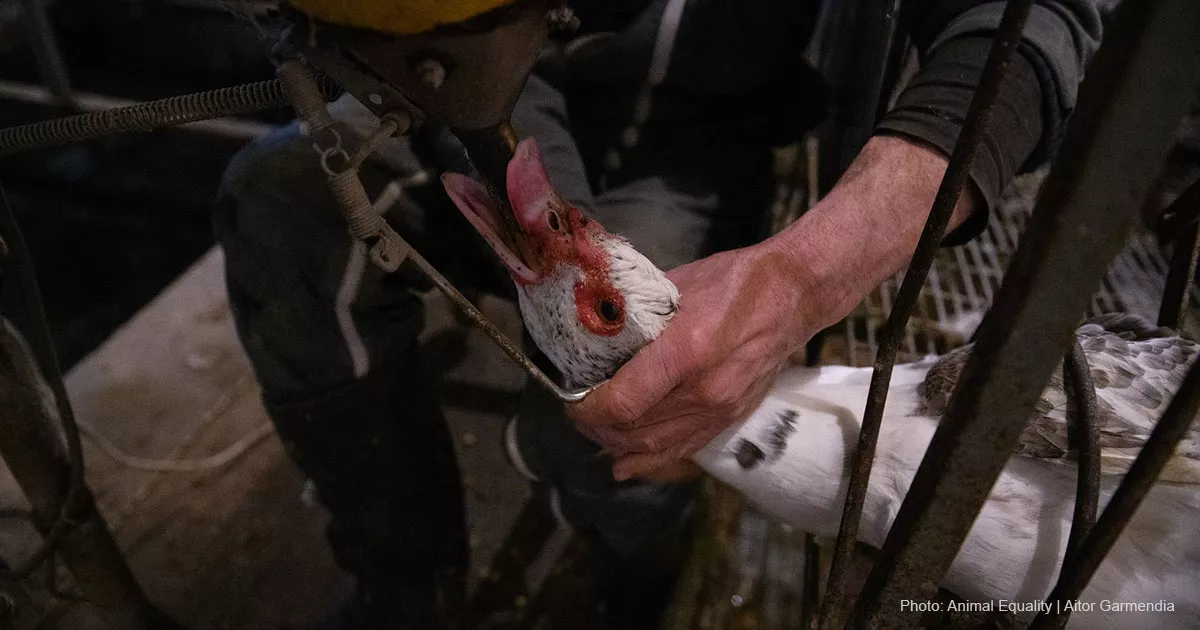
Update 6/25/2024: A campaign by Animal Equality has been launched in response to last week’s reports that foie gras will be served at the Olympic Games. This food, produced by force-feeding ducks and geese, will be offered in luxury lounges to premium guests who purchase a hospitality package.
View our appeal to the Olympic Games organizer:
Join us in demanding that foie gras made by force-feeding is removed from the Olympic hospitality menu!
The 2024 Olympic Games are set to take place in Paris between July 26th and August 11th and aim to “deliver a taste of France in a responsible manner.
Organizers claim to be “laser-focused on showcasing French food that is sourced, produced and consumed in a responsible way,” with 80% of meals provided being locally sourced. In a move to provide sustainable, environmentally-friendly options, some 60% of the 13 million meals provided will be meat-free and plant-based. With a goal to put “more plants on our plates,” offerings include vegetarian shawarma, quinoa risotto, and even a plant-based “tuna.”
While we are pleased to see that the Committee is promoting “leaf over beef,” we are disappointed to see that foie gras will feature on the hospitality menu and will be served on-site throughout the event.
The cruelty behind foie gras
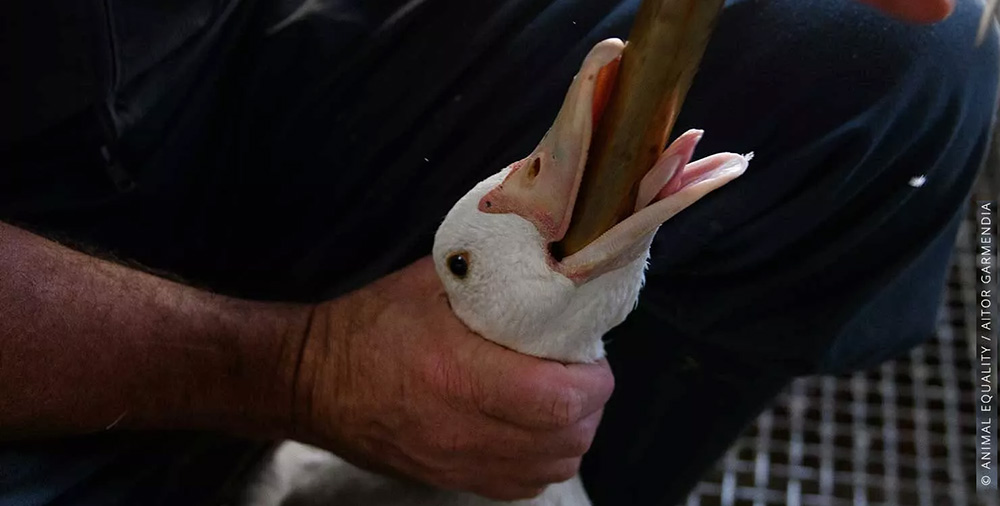
Made by force-feeding, foie gras is a highly divisive product. Millions of ducks and geese each year are forced to consume unnatural quantities of feed until their livers swell to ten times their natural size. Each bird will be force-fed two or three times a day for several weeks, up to 63 times, until they are slaughtered.
Animal Equality has conducted over a dozen investigations into this industry in France and Spain since 2012. The group has gathered hundreds of hours of footage revealing birds confined in wire cages, suffering from breathing difficulties, eye infections, and broken wings and beaks. Professor Donald Broom, a University of Cambridge academic, has studied the effects of the “gavage” process on animals. In his 2017 paper, he concluded: “The results of this report are unequivocal. The practice of force-feeding causes a sharp deterioration in the welfare of the ducks.”
Foie gras on the menu
The discovery of foie gras on the Olympic Games’ menus comes after Animal Equality approached the International Olympic Committee’s President, Director General, and Executive Director, in April. In a letter, our President and Co-Founder–Sharon Núñez– applauded the Committee’s efforts to promote environmental sustainability and requested confirmation that foie gras would not be featured. She wrote that to serve foie gras made by force-feeding would be “wholly misaligned with the intended event ethos.”
We have yet to receive a response, but through email exchanges with the Olympic hospitality caterers, we discovered that foie gras will be served to guests who have purchased premium hospitality packages which are worth between EUR 85 to over EUR 9,500.
In a written statement, the Games’ caterers said:
Foie gras will not be offered as a standalone dish within our culinary program during the Olympic Games. However, some recipes may include foie gras as an ingredient, for example in pâtés and local specialties. These dishes will represent approximately 0.1% of our overall menu offerings throughout the Games.
However, any amount is too much. Each duck or goose suffers immensely and needlessly for this cruel product. Marie-Pierre Pé, Director of Cifog–a body representing foie gras farmers–has even stated that the industry is ramping up its production “in the run-up to the big event that is the Olympic Games where the whole world will come to France.”
We will not accept this
Foie gras made by force-feeding is extremely cruel, and we are taking action to urge the Games’ organizers to see reason and remove this product from the hospitality menu.
Countries around the world are beginning to ban its sale and importation on grounds of animal cruelty. The process of force-feeding animals for human consumption is forbidden in many nations, including Denmark, Germany, Poland, Norway, Luxembourg, and Turkey. In 2014, Animal Equality successfully lobbied the Indian Government to stop the sales of foie gras, making India the first country in the world to ban both the importation and production of foie gras.
The Olympics are a beacon of international concord, human accomplishment, and friendship. To serve foie gras–a product that is elitist, cruel to animals, and illegal in many countries–is disappointing to anyone who believes in equality and solidarity and goes against the spirit of the Games.
Sharon Núñez, President and Co-Founder of Animal Equality
The Games offer a unique opportunity for the world to come together, but foie gras is an incredibly divisive dish. By putting more plants on plates, the 2024 Paris Olympics gives a glimpse into a kinder, more sustainable future; that future must not include foie gras. The Committee should focus on celebrating our shared international interests: animal cruelty is not one of those interests. I strongly urge the Committee to see reason and remove it from the menu.
Abigail Penny, Executive Director of Animal Equality UK
To envisage attendees eating the diseased liver of a tortured duck or goose at the Olympic Games is jarring, to say the least. I too am immensely proud of my French heritage, but I am certainly not proud of the force-feeding of innocent animals, and the Committee shouldn’t be either.
Alexis Gauthier, Michelin-starred French gastronomic chef
Animal Equality revealed this discovery to hundreds of thousands of readers via The Independent today. This will raise awareness of the cruel production of foie gras and mobilize the public on this important issue. More actions will follow!
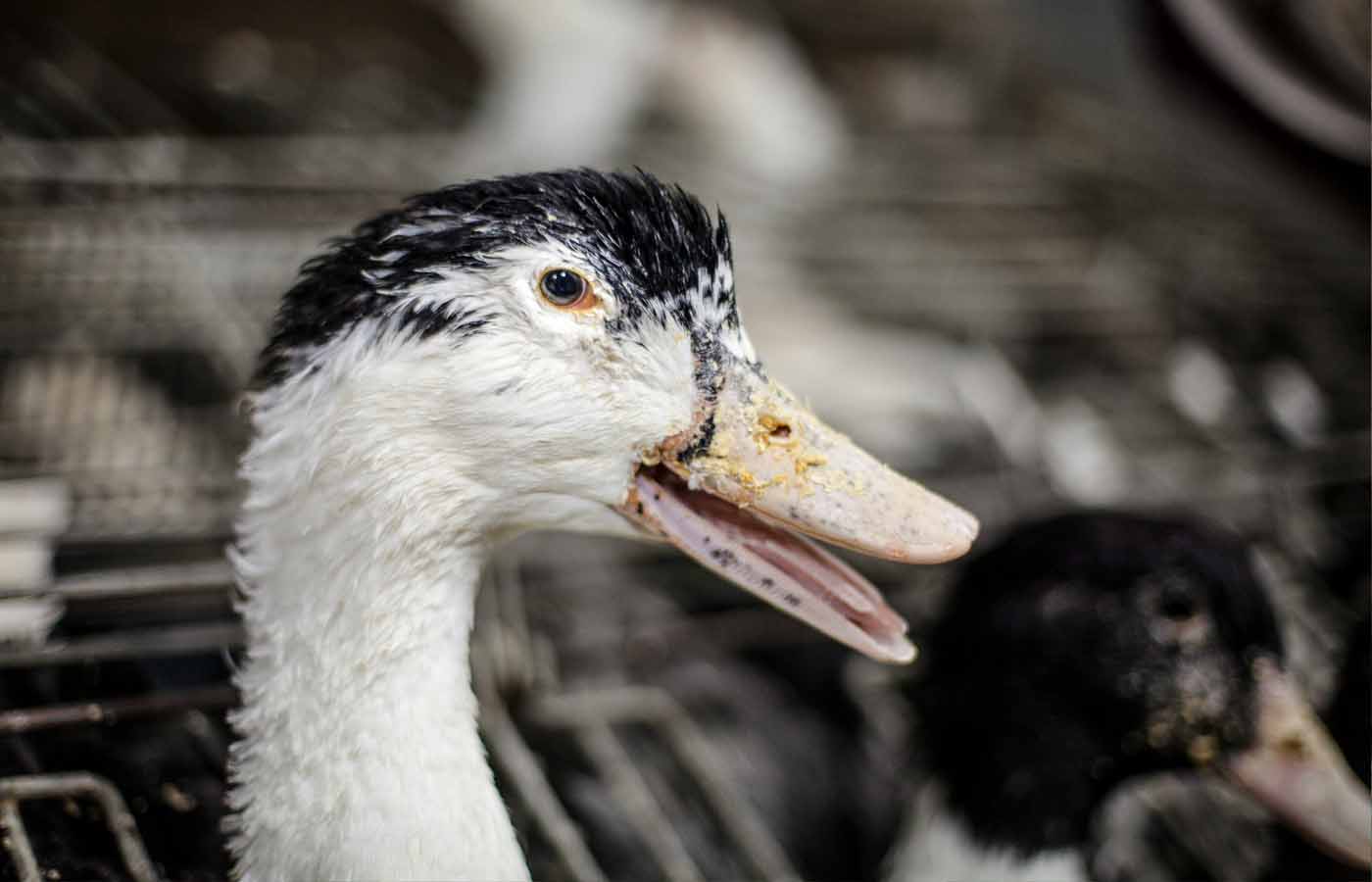
PROTECT DUCKS
Even before hatching from their eggs, ducklings communicate with their close‑knit families.
Protect these families by eating plant‑based and ditching animal products.

